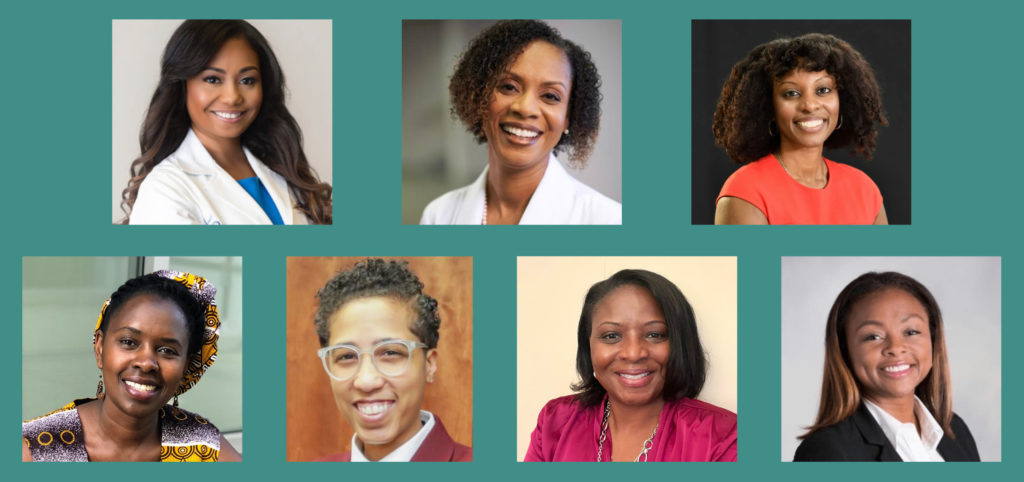HBCUs Model How to Integrate EDI Principles into PA Programs
This month for EDI in Action, Historically Black Colleges and Universities are in the spotlight.
Historically Black Colleges and Universities (HBCUs) were first established in the United States in the early nineteenth century to provide undergraduate and graduate-level education to Black people who were prevented from attending other colleges and universities due to racial discrimination. Today, 70% of Black dentists and physicians, 50% of Black teachers, and 40% of Black health care professionals earned degrees at HBCUs.
Given the importance of intersectionality, defined by the Oxford Laguages as the “interconnected nature of social categorizations such as race, class, and gender … creating overlapping and interdependent systems of discrimination or disadvantage,” we think it’s important to note that all the HBCU PA progams in this story are led by Black women.

It is imperative that we recognize the importance of HBCUs as we work together to advance the PA profession and decrease health disparities.
Evidence shows that when physicians and patients are of the same race or ethnicity, patient outcomes improve, such as “time spent together, medication adherence, shared decision-making, wait times for treatment, cholesterol screening, patient understanding of cancer risk, and patient perceptions of treatment decisions.”
At Xavier University’s PA program, one of their goals is to “engage in community outreach to meet the needs of our underserved communities.” They achieve this goal in a myriad of ways, one being the Xavier University Community Outreach Center which invites students and faculty to engage in volunteer work and outreach experiences to benefit the New Orleans community and cultivate sustainability. PA students at Xavier can also be seen packing food to be distributed within their community, participating in STEM engagement activities at local schools, and more on their student-run Instagram account.
In 2021, PA students at Morehouse School of Medicine held their first PAs in the Park event, where they worked “to advance health and health equity by offering services that respond to Atlanta residents’ health care and wellness needs.” Among the services offered were vaccinations, free health screenings, COVID-19 tests, and more. PAs in the Park is now an annual event held in Washington Park that allows PA students to attain hands-on experience working with underserved populations while serving the needs of their community.
The University of Maryland Eastern Shore’s (UMES) PA Program emphasizes community connections through partnerships with local high schools on the Eastern Shore of Maryland. The UMES PA Program, along with other programs within the School of Pharmacy and Health Professions, provides insight and access for high schoolers who are interested in careers in health care and STEM through their Upward Bound Summer Program. During this program, the PA students provide a detailed overview of a PA and demonstrate various clinical skills and training that are required to become a PA. All activities are hands-on and at the conclusion students have an opportunity to ask questions and make new connections.
Many students at HBCUs passionately dedicate themselves to social justice and spend the little free time that they have spreading awareness about important issues, participating in demonstrations, and organizing for causes they believe in. At Charles R. Drew University of Medicine and Science, the Social Justice Society (SJS) was created by a group of PA program students on campus following George Floyd’s death in 2020. Through the SJS, PA students at CDU often engage with the greater Los Angeles community through health fairs and blood drives. They also held a reproductive rights march to “shed light on the injustices faced by women in health care” in response to the overturning of Roe v. Wade.
Educators at Drew this year established the EDGE (Empowering Diversity, Growth, and Excellence) Physician Assistant Program to recruit Black men who are on the precipice of acceptance into a PA program but just need that extra boost to get in. EDGE provides educational resources such as mentoring, mock interviews, CASPA application reviews, and more.
In addition, Meharry Medical College in Nashville, Tennessee, is growing its PA program after it received provisional accreditation status from the Accreditation Review Commission on Education for the Physician Assistant (ARC-PA) to launch the Physician Assistant Sciences Program in the School of Graduate Studies and Research, and began enrolling students in January 2023. Michelle Drumgold, MSPH, MPAS, PA-C, chair and founding program director, stated, “While a lot of progress has been made in diversifying our PA workforce, there are still too few minority students considering this wonderful career path. My colleagues and I are working to break down some of the barriers Black and brown students can face.”
Howard University’s PA program has also received accreditation-provisional status from ARC-PA and is eager to “prepare culturally and clinically competent health care providers who will have a positive impact on today’s health care workforce and beyond.” Howard’s PA program is excited to welcome its inaugural class this fall.
In October of 2022, North Carolina Agricultural and Technical State University was approved by the UNC System Board of Governors and is now working with ARC-PA on accreditation. North Carolina A&T is an 1890 land grant and doctoral-research university that offers more than 90 degree programs at the bachelor’s, master’s, and doctoral levels. North Carolina A&T PA Program anticipates matriculating its first class in 2025 pending achieving provisional accreditation status. PAEA President Elect Nicole B. Burwell, PhD, PA-C has been appointed to serve as the founding program director and is looking forward “to building on the great work already being done at one of the top universities nationally in STEM education and upward social mobility.”
Program directors, faculty, and staff members of HBCU PA programs are encouraged to join PAEA’s HBCU Consortium Discussion Forum Professional Learning Community (PLC) to share knowledge and connect with their peers.




